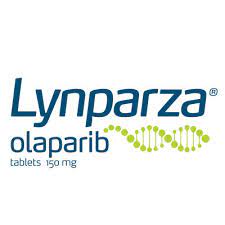AstraZeneca and Merck, known as MSD outside the United States and Canada, today announced that LYNPARZA has been granted conditional approval in China as monotherapy for the treatment of adult patients with germline or somatic BRCA-mutated metastatic castration-resistant prostate cancer (mCRPC) who have progressed following prior treatment that included a new hormonal agent (abiraterone, enzalutamide).
The approval by the Chinese National Medical Products Administration was based on a subgroup analysis of the Phase 3 PROfound trial which showed that LYNPARZA demonstrated a substantial improvement in radiographic progression-free survival (rPFS) and overall survival (OS) versus abiraterone or enzalutamide in men with BRCA1/2 mutations. Continued approval is contingent upon verification and description of clinical benefit in a planned bridging trial with Chinese patients.
In China, prostate cancer is the sixth most prevalent cancer in men, with approximately 115,000 new patients diagnosed each year and about 7% have germline BRCA mutations.Prostate cancer patients with these mutations are more likely to have poorer outcomes than those without the mutations. Approximately 70% of prostate cancer patients in China have advanced disease at the time of diagnosis, and for those with mCRPC the median survival time is less than two years.
Dave Fredrickson, executive vice president, oncology business unit, AstraZeneca, said, “LYNPARZA more than tripled radiographic progression-free survival and is the only PARP inhibitor to show an overall survival benefit compared to treatment with abiraterone or enzalutamide for men with BRCA-mutated metastatic castration-resistant prostate cancer.”
Dr. Roy Baynes, senior vice president and head of global clinical development, chief medical officer, Merck Research Laboratories, said, “The approval underscores the critical importance of BRCA testing in men with prostate cancer. We are proud to provide a new personalized treatment option for men with this devastating disease in China, and we will continue to collaborate with the Chinese government and healthcare organizations to bring LYNPARZA to patients who need it.”
Results from the subgroup analysis from the PROfound trial showed LYNPARZA reduced the risk of disease progression or death by 78% (HR=0.22 [95% CI, 0.15-0.32]; p<0.0001) and improved rPFS to a median of 9.8 months versus 3.0 months with abiraterone or enzalutamide in men with mCRPC with BRCA1/2 mutations. In addition, LYNPARZA reduced the risk of death by 37% (HR=0.63 [95% CI, 0.42-0.95]) with a median OS of 20.1 months versus 14.4 months with abiraterone or enzalutamide. The primary results and OS results from the PROfound Phase 3 trial were published in The New England Journal of Medicine last year.
The most common adverse reactions (ARs) in the PROfound trial, occurring in ≥10% of subjects, for LYNPARZA compared to abiraterone or enzalutamide were anemia (46% vs.15%), nausea (41% vs. 19%), fatigue (including asthenia) (41% vs. 32%), decreased appetite (30% vs. 18%), diarrhea (21% vs. 7%), vomiting (18% vs. 12%), thrombocytopenia (12% vs. 3%), cough (11% vs. 2%) and dyspnea (10% vs. 3%). Dose interruptions due to an AR occurred in 45% of patients receiving LYNPARZA and dose reductions due to an AR occurred in 22% of LYNPARZA patients. Discontinuation due to ARs occurred in 18% of LYNPARZA patients.

 Only PARP Inhibitor to Demonstrate Overall Survival Versus New Hormonal Treatments in BRCA1/2-Mutated Advanced Prostate Cancer
Only PARP Inhibitor to Demonstrate Overall Survival Versus New Hormonal Treatments in BRCA1/2-Mutated Advanced Prostate Cancer









.jpeg)








.png)
.png)

.png)
.png)
.png)

.png)
.png)
.png)

.png)
.png)